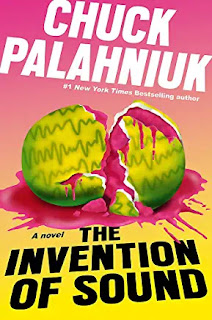 |
So it has been for Chuck Palahniuk.
His 1996 novel, Fight Club, was the equivalent of a brick in the face. A peak into the mindset of the average mid 90’s Western male, it spoke to a generation who had laughed at the excess of the 1980’s, only to find themselves engulfed in an all-pervasive consumer culture. One where your nearest art gallery was your local shopping centre.
Given extra notoriety thanks to the 1999 film adaptation, Fight Club has become one of the key texts of 1990’s American literature, alongside Infinite Jest, American Psycho and The Secret History. Amusingly, it has also become a red flag to certain circles of women, who openly refuse to date any man who lists this or Infinite Jest as their favourite book!
Unfortunately, Fight Club was nearly 25 years ago. And while it’s obviously unfair to consistently refer back to it (especially considering his prolific output), it has cast a large shadow over Palahniuk’s career (so much so that he’s given us two sequels in comic book form). When you’ve peaked so high early on, everything else seems ‘less’ by comparison.
Sadly, ‘less’ is definitely the best way to describe his latest.
The Invention of Sound has an intriguing premise: a sound engineer/Foley artist called Mitzi Ives who is renowned in Hollywood for her ability to capture piercing screams (as a result of the people she tortures and kills) has a recording that is (literally) to die for), while Gates Foster (a divorcee whose daughter has been missing, presumed dead, for nearly twenty years) spends his time hunting down paedophiles and watching his daughter age via digital aging on milk cartons. One day, he watches a film and hears a scream that sounds like his daughter, so he goes off in search of the filmmakers.
As you can see, part of the basic premise comes from the 1979 George C. Scott film Hardcore (in which a man sees his daughter in a pornographic movie and goes to find her), while the concept of the method Foley artist is both an extension of Fight Club’s concept of how improvement is merely masturbation, while destruction is the answer and a sly reference to the public reaction of Palahniuk’s short story ‘Guts.’
Nothing wrong with this (after all, Robert Smith once said that you’re not a true artist if you don’t keep returning to certain themes throughout your career), but it never comes together in a satisfying or compelling way.
The biggest problem with the novel is that it neither works as a character study, nor does it work as fast paced thriller. The Mitzi segments explore her dark past and her use of Ambien and, while they are captivating enough, she is very much a remote character: one we study but feel no attachment to. Same with Gates (who descends into a supporting character role in the middle of the story before coming back to prominence towards the end). Ultimately, it feels like two short stories padded out and stuck together as a novel (indeed, a whole novel with Mitzi as the narrator would actually have been a potentially interesting read).
As a result, the reader really needs a story to encompass these characters and let us observe their journeys. And while there is a story, it’s a stodgy and uninteresting one, peppered with cartoonish moments here and there that make the reader’s eyes roll. Also, as alluded to, the middle of the book descends into farce with the introduction of a faded Hollywood diva who uses these events as a way of restarting her career.
Although it’s obviously intended to provide a connection between Gates and Mitzi, it feels forced and the segment really offers nothing of interest or insight to the reader, nor does it even work as dark comedy.
Maybe next time, Chuck?
Chuck Palahniuk, 2020, The Invention of Sound. Corsair ISBN-13: 978-1472155481
⏩ Christopher Owens was a reviewer for Metal Ireland and finds time to study the history and inherent contradictions of Ireland. He is currently the TPQ Friday columnist.






No comments